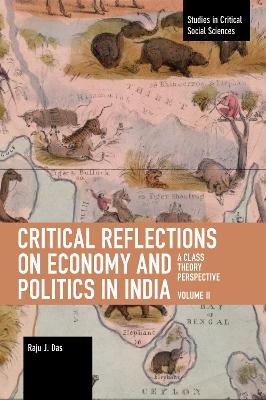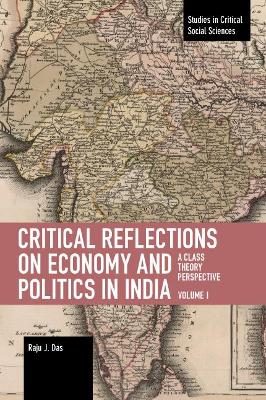Studies in Critical Social Science
2 total works
Critical Reflections on Economy and Politics in India. Volume 2
by Raju J. Das
Published 16 September 2021
In the first volume of this sweeping analysis of contemporary India, Raju Das offers a much needed class-based perspective on the economic situation in what has become one of the fastest growing economies in the world. Offering invaluable insights along the way, Das examines the specificities of Indian capitalism and neoliberalism, the country's geographically uneven development, the impact of technological change, and the consequences of its export-oriented, nature-dependent production.
Critical Reflections on Economy and Politics in India applies abstract theoretical ideas to the concrete situation in India, which, in turn, inspires a rethinking of theory. Das unabashedly shows the relevance of a class theory that takes seriously matters of oppression/domination of religious minorities and lower castes. A must read for anyone looking to not only interpret the world, but to change it.
Critical Reflections on Economy and Politics in India applies abstract theoretical ideas to the concrete situation in India, which, in turn, inspires a rethinking of theory. Das unabashedly shows the relevance of a class theory that takes seriously matters of oppression/domination of religious minorities and lower castes. A must read for anyone looking to not only interpret the world, but to change it.
Critical Reflections on Economy and Politics in India. Volume 1
by Raju J. Das
Published 16 September 2021
In the first volume of this sweeping analysis of contemporary India, Raju Das offers a much needed class-based perspective on the economic situation in what has become one of the fastest growing economies in the world. Offering invaluable insights along the way, Das examines the specificities of Indian capitalism and neoliberalism, the country's geographically uneven development, the impact of technological change, and the consequences of its export-oriented, nature-dependent production.
Critical Reflections on Economy and Politics in India applies abstract theoretical ideas to the concrete situation in India, which, in turn, inspires a rethinking of theory. Das unabashedly shows the relevance of a class theory that takes seriously matters of oppression/domination of religious minorities and lower castes. A must read for anyone looking to not only interpret the world, but to change it.
Critical Reflections on Economy and Politics in India applies abstract theoretical ideas to the concrete situation in India, which, in turn, inspires a rethinking of theory. Das unabashedly shows the relevance of a class theory that takes seriously matters of oppression/domination of religious minorities and lower castes. A must read for anyone looking to not only interpret the world, but to change it.

